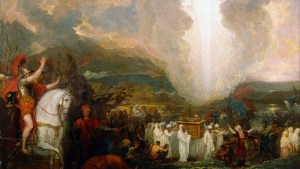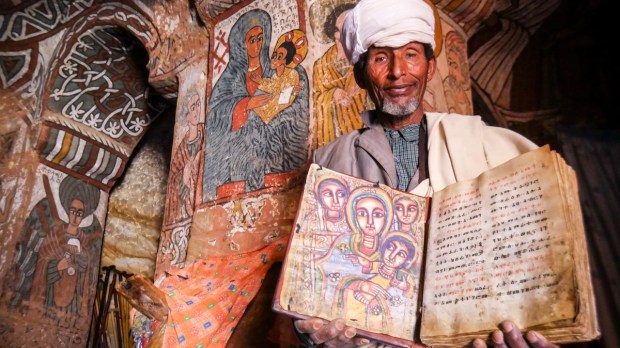Lenten Campaign 2025
This content is free of charge, as are all our articles.
Support us with a donation that is tax-deductible and enable us to continue to reach millions of readers.
Right in the Horn of Africa, Ethiopia has a history deeply intertwined with Christianity. As one of the oldest Christian nations in the world, Ethiopia claims faith that can be said to predate the arrival of Christianity in Europe – even if just by a few years. This deep-rooted tradition has fostered a unique variety of Christian spirituality that remains vibrant and very much alive today.
The story of the Ethiopian eunuch told in the book of Acts (Acts 8, 26-40) offers a glimpse into the early seeds of Ethiopian Christianity. The text claims that “a eunuch, a court official of Candace, queen of the Ethiopians, who was in charge of all her treasure” met the missionary Philip on a pilgrimage to Jerusalem. Philip explained the Gospel message and the eunuch, filled with joy, converted and was baptized. This encounter is believed to have sparked the spread of Christianity in Ethiopia.
In hisAdversus Haereses,St. Irenaeus claims the eunuch “was sent into the regions of Ethiopia, to preach what he had himself believed, that there was one God preached by the prophets, but that the Son of this (God) had already made (His) appearance in human flesh, and had been led as a sheep to the slaughter; and all the other statements which the prophets made regarding Him.”
Christianity was soon adopted as the Ethiopian official religion.

Ethiopian Christian spirituality emphasizes a connection to Scripture, both the Hebrew Bible and the Gospels, and to the land itself: Ancient traditions claim that the Garden of Eden was in Ethiopia, and mountain-top monasteries with its elaborately decorated churches offer a panoramic view of what was believed to be the biblical paradise. Public expressions of faith are common, and prayer and fasting are integrated into daily life.
The Ethiopian Orthodox Tewahedo Church, the country’s dominant denomination, places a strong emphasis on the Ark of the Covenant, which is believed to be housed in the historic capital of Axum. Processions accompanied by colorful umbrellas and rhythmic drumming are obvious manifestations of Ethiopians’ deep devotion to these sacred traditions.

It’s also worth noting that Ethiopia has a fascinating footnote in Christian history: Emperor Haile Selassie I, who reigned until the mid-20th century, was considered the world’s last Christian emperor. However, it’s important to distinguish between Ethiopian Orthodox consideration of their emperors and the separate Rastafarian belief system, which deifies Haile Selassie as a messianic figure – an entirely different phenomenon.
Ethiopian Christian spirituality is a powerful reminder of the universality of the Christian message, taking root and flourishing in diverse cultures around the world.



